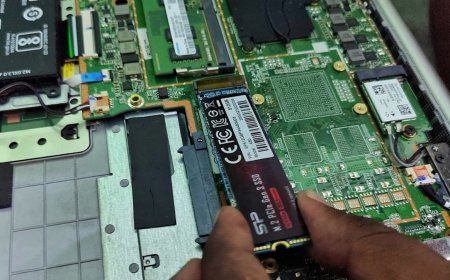How to Find Oakland Jazz Trumpet Lessons
How to Find Oakland Jazz Trumpet Lessons Finding the right jazz trumpet lessons in Oakland is more than just locating a music teacher—it’s about connecting with a mentor who understands the nuances of improvisation, the history of West Coast jazz, and the unique cultural rhythm of the Bay Area. Whether you’re a complete beginner taking your first breath through a mouthpiece or an intermediate play
How to Find Oakland Jazz Trumpet Lessons
Finding the right jazz trumpet lessons in Oakland is more than just locating a music teacher—it’s about connecting with a mentor who understands the nuances of improvisation, the history of West Coast jazz, and the unique cultural rhythm of the Bay Area. Whether you’re a complete beginner taking your first breath through a mouthpiece or an intermediate player looking to refine your phrasing and harmonic vocabulary, the journey of mastering the trumpet in Oakland’s vibrant musical landscape demands intention, research, and patience. This guide provides a comprehensive, step-by-step roadmap to help you discover authentic, high-quality jazz trumpet instruction tailored to Oakland’s diverse musical community. From evaluating instructors to leveraging local networks and digital tools, this tutorial ensures you don’t just find a teacher—you find the right teacher for your artistic goals.
Step-by-Step Guide
Define Your Learning Goals
Before you begin searching for lessons, clarify what you want to achieve. Are you learning to play “Autumn Leaves” with proper swing feel? Do you want to improvise over modal changes like those in Miles Davis’s “So What”? Are you preparing for a community ensemble, a college audition, or simply personal enrichment? Your goals will determine the type of instructor you need. For example, if you’re drawn to the bebop style of Clifford Brown, seek a teacher with experience in that tradition. If you’re interested in contemporary fusion, look for someone who incorporates electronic elements or funk rhythms. Write down three specific outcomes you want from your lessons—this will serve as your filter when evaluating potential instructors.
Research Local Music Schools and Studios
Oakland is home to several music schools and private studios that specialize in jazz education. Start by compiling a list of institutions with strong reputations in jazz performance. Key names include the Oakland School for the Arts (OSA), the Jazz School Berkeley (which serves the broader East Bay), and smaller independent studios like The Horn House and Sound Roots Music. Visit their websites and look for faculty bios—do they list performance experience, recordings, or teaching philosophy? Many instructors at these institutions have played with nationally recognized artists or taught at universities. Pay attention to whether they offer private one-on-one lessons or group classes, as private instruction is typically more effective for trumpet technique and personalized feedback.
Check Community Centers and Libraries
Oakland’s public infrastructure supports arts education through community centers and libraries. The Oakland Public Library system hosts free or low-cost music workshops and often has bulletin boards with local instructor flyers. Visit branches like the Main Library, Eastmont, or Grand Lake, and ask the reference desk if they maintain a list of local music teachers. Community centers such as the East Bay Center for the Performing Arts and the Fruitvale Community Center frequently offer jazz ensembles or private lessons at sliding-scale rates. These venues are especially valuable for students seeking affordable options without sacrificing quality.
Engage with Local Jazz Venues and Events
One of the most effective ways to find a great trumpet teacher is to observe who is playing on stage. Attend live jazz performances at venues like the New Parish, Yoshi’s Oakland, or the Back Room. After the show, approach musicians after their set—politely ask if they teach, and if so, how they structure their lessons. Many professional players in Oakland offer private instruction as a supplement to their performance careers. You’ll often find that these instructors bring real-world experience into their teaching, including how to navigate gigs, develop stage presence, and improvise under pressure. Keep a notebook: note names, venues, and the style of music performed. Over time, patterns will emerge about which players are consistently sought after by students.
Use Social Media and Online Communities
Platforms like Facebook, Instagram, and Reddit host active Bay Area music communities. Search for groups such as “Oakland Musicians Network,” “East Bay Jazz Lovers,” or “Bay Area Trumpet Players.” Post a clear, respectful inquiry: “Looking for a jazz trumpet teacher in Oakland with experience in bebop and modal jazz. Open to in-person or virtual lessons. Any recommendations?” Be specific about your skill level and goals. Many teachers actively promote their services in these groups, and students often leave honest reviews. On Instagram, follow hashtags like
oaklandjazz, #bayareatrumpet, or #jazzlessonsocal. Look for posts tagged with location and lesson offerings—many instructors post short video clips of lessons or student performances.
Search Google with Strategic Keywords
Google is still one of the most powerful tools for local discovery. Use long-tail keywords that reflect intent: “private jazz trumpet lessons Oakland CA,” “best jazz trumpet teacher for beginners Oakland,” or “Oakland jazz trumpet instructor with recording experience.” Avoid generic terms like “music lessons” — they return too many non-jazz results. Look at the top three organic results and check their websites for credentials, student testimonials, and lesson formats. Pay attention to whether they mention Oakland-specific influences—such as the legacy of Cal Tjader, Art Blakey’s West Coast connections, or the Oakland Jazz Workshop. A teacher who references local history demonstrates deeper cultural awareness.
Request Trial Lessons
Never commit to a long-term package without trying a lesson first. Most reputable instructors offer a 30- to 60-minute trial session at a reduced rate or even free. Use this time to assess: Does the teacher explain concepts clearly? Do they tailor exercises to your level? Do they encourage questions? Do they have a structured curriculum, or is each lesson random? Observe their communication style—are they patient, enthusiastic, and constructive? Bring your trumpet and play a simple tune you’re comfortable with. A good teacher will listen, give immediate feedback, and suggest a practice plan for next time. If you leave the lesson feeling inspired and understood, you’ve likely found a strong match.
Evaluate Teaching Materials and Curriculum
A professional jazz trumpet instructor should have a clear, evolving curriculum. Ask to see their teaching materials: Are they using books like “The Art of Jazz Trumpet” by Clark Terry, “Jazz Conception” by Jim Snidero, or “Patterns for Jazz” by Jerry Coker? Do they incorporate ear training, transcription exercises, and scale patterns specific to jazz? Do they use play-along tracks or digital tools like iReal Pro? Avoid teachers who rely solely on method books designed for classical trumpet or who don’t emphasize improvisation. Jazz is an oral tradition—your teacher should be guiding you to listen deeply, transcribe solos, and internalize phrasing, not just memorize notes.
Verify Credentials and Experience
While formal education isn’t always necessary, it’s a strong indicator of discipline and depth. Look for instructors with degrees in jazz performance from institutions like Berklee, the New School, or the University of North Texas. Many Oakland-based teachers have studied under legends like Bobby Hutcherson or performed with the Oakland Symphony Jazz Orchestra. Ask about their performance history: Have they recorded albums? Played at major festivals? Tour nationally? Real-world experience translates directly into teaching credibility. Also, check if they’ve taught for more than five years—experience matters in developing pedagogical skills. Don’t hesitate to ask for references from current or former students.
Consider Location, Format, and Cost
Practical factors matter. Will you travel to a studio in downtown Oakland, or does the teacher offer in-home lessons? Are virtual lessons available via Zoom or Skype? Many Oakland residents appreciate hybrid options. Compare pricing: private lessons typically range from $40 to $100 per hour, depending on the teacher’s experience. Be wary of extremely low prices—they may indicate limited expertise or availability. Also, ask about scheduling flexibility. Do they offer evening or weekend slots? Can you reschedule if you miss a lesson? A teacher who accommodates your life is more likely to help you stay consistent.
Best Practices
Consistency Over Intensity
Learning jazz trumpet is not about cramming. Even 20 minutes of focused daily practice with a skilled teacher’s guidance will yield more progress than two hours of unstructured playing once a week. Commit to a weekly lesson schedule and treat it like an appointment you can’t miss. Consistent feedback from a teacher helps you correct bad habits before they become ingrained. Your teacher should help you build a daily practice routine that includes long tones, scales, articulation drills, and transcription work.
Transcribe and Internalize Solos
One of the most powerful tools in jazz education is transcription. Your teacher should encourage you to listen to recordings of jazz trumpet legends—Louis Armstrong, Dizzy Gillespie, Miles Davis, Freddie Hubbard, Wynton Marsalis—and write down their solos by ear. Start with short phrases. Learn to sing them first, then play them on your horn. This trains your ear, improves intonation, and builds vocabulary. A great Oakland instructor will assign transcriptions from local artists too—like the late, great Marcus Shelby or Oakland-born trumpeter Terence Blanchard.
Record Yourself Regularly
Use your phone to record your practice sessions and lessons. Listen back critically: Are you rushing the tempo? Is your tone consistent? Do your phrases have direction? Recording helps you hear what you sound like to others. Share recordings with your teacher—they’ll give you targeted feedback. Over time, you’ll hear your own growth, which is incredibly motivating.
Join a Local Ensemble
Lessons alone won’t prepare you for playing with others. Look for Oakland-based jazz combos, community bands, or youth ensembles. The Oakland Youth Jazz Ensemble and the East Bay Jazz Collective offer performance opportunities for students. Playing in a group teaches you listening, timing, and dynamics in ways private lessons cannot. Your teacher may even recommend or lead such groups.
Study Oakland’s Jazz History
Oakland has a rich, often overlooked jazz legacy. From the heyday of the “Harlem of the West” in the 1940s and 50s—when legends like Billie Holiday and Charlie Parker played at the Black Hawk—to today’s thriving underground scene, the city’s jazz culture is deeply rooted. Read books like “The Jazz Scene” by Albert Murray or explore the Oakland Museum of California’s jazz archives. Understanding your musical heritage deepens your interpretation and connects you to the soul of the music.
Build a Relationship, Not Just a Transaction
The best jazz teachers become mentors. They care about your growth as a musician and as a person. Don’t treat lessons as a commodity. Show up prepared, ask thoughtful questions, and express gratitude. If you’re serious about jazz, your teacher will notice—and they’ll invest more in you. Over time, they may introduce you to gigs, recommend you for workshops, or connect you with other musicians.
Stay Open to Different Styles
While you may be drawn to bebop, don’t shut out other jazz subgenres. Latin jazz, free jazz, and jazz-funk are all part of Oakland’s sonic tapestry. A great teacher will expose you to a range of styles and help you find your voice within them. Don’t be afraid to explore—your unique sound will emerge from synthesis, not imitation.
Tools and Resources
Essential Apps for Jazz Trumpet Students
Technology enhances learning when used intentionally. Here are the most valuable apps for Oakland jazz trumpet students:
- iReal Pro – A digital play-along app with thousands of jazz standards in every key. Use it to practice improvisation with realistic backing tracks.
- Transcribe! – Slows down recordings without changing pitch, making transcription easier. Essential for learning solos by ear.
- Metronome Beats – A clean, customizable metronome app to develop timing. Jazz is all about feel, but you need a solid internal pulse.
- YouTube – Search “jazz trumpet lesson Oakland” or “Miles Davis solo breakdown.” Channels like “Jazz Lessons with David Liebman” or “Trumpet Lessons with Chris Botti” offer free, high-quality instruction.
Recommended Books
Every serious student should build a personal library. Start with these foundational texts:
- “The Jazz Theory Book” by Mark Levine – The most comprehensive guide to harmony, scales, and chord progressions in jazz.
- “Jazz Improvisation” by David Baker – A structured approach to soloing, phrasing, and articulation.
- “The Art of Jazz Trumpet” by Clark Terry – A masterclass in tone, technique, and musicality from one of the genre’s giants.
- “Patterns for Jazz” by Jerry Coker – A collection of melodic patterns to internalize and apply in improvisation.
Local Resources in Oakland
Take advantage of Oakland’s physical and cultural resources:
- Oakland Public Library Music Collection – Free access to jazz recordings, sheet music, and instructional DVDs.
- Oakland Jazz Workshop – Hosts weekly jam sessions, masterclasses, and open mic nights for students and professionals.
- East Bay Music Exchange – A local shop that sells used horns, sheet music, and often hosts teacher referrals.
- Cal State East Bay Music Department – Occasionally offers community classes or guest artist workshops open to the public.
Online Platforms for Finding Teachers
While local networks are vital, online platforms can expand your options:
- TakeLessons – Lists verified Oakland-based trumpet teachers with reviews and scheduling tools.
- Thumbtack – Allows you to compare quotes from multiple instructors and read client feedback.
- Lessonface – Offers live video lessons with jazz specialists across the country—ideal if local options are limited.
Recording and Practice Tools
Invest in a simple USB microphone (like the Audio-Technica AT2020) and free DAW software like Audacity to record your practice. Use headphones to monitor your tone. A tuner app (like PitchLab) helps with intonation—critical for trumpet players. A music stand and a practice mute are essential for quiet home sessions.
Real Examples
Example 1: Maria, 17, High School Student
Maria had played trumpet in her school band for three years but wanted to play jazz. She searched “Oakland jazz trumpet teacher for teens” and found a listing on TakeLessons for a teacher who had studied with the late Bobby Hutcherson. She scheduled a trial lesson and was impressed by how he broke down Charlie Parker’s “Ornithology” solo into manageable phrases. He assigned her to transcribe the first eight bars and play them with a backing track. Within two months, she joined the Oakland Youth Jazz Ensemble and performed at Yoshi’s. Her teacher also connected her with a scholarship to attend the Stanford Jazz Workshop.
Example 2: James, 42, Returning Musician
James hadn’t played since college. He rediscovered his trumpet in the attic and wanted to reconnect with jazz. He visited the Oakland Public Library and found a flyer for a free jazz workshop at the Fruitvale Community Center. There, he met a retired professional trumpeter who taught at the Jazz School Berkeley. James started with biweekly lessons focused on tone production and ear training. He began listening to recordings of Maynard Ferguson and Lee Morgan every night. After six months, he joined a local combo and started performing at neighborhood cafes. He now teaches beginner lessons himself, passing on what he learned.
Example 3: Diego, 28, Freelance Musician
Diego played in Latin bands but wanted to expand into jazz. He attended a live gig at the New Parish and was blown away by the trumpet player’s use of space and dynamics. After the show, he asked if the musician taught. The teacher, a former member of the Oakland Symphony Jazz Orchestra, agreed to a trial. Diego’s lessons focused on harmonic substitution and rhythmic displacement. He transcribed solos from Freddie Hubbard’s “Red Clay” and incorporated them into his own playing. Within a year, he was gigging with a jazz-funk group in the Bay Area and recording an EP.
Example 4: Aisha, 60, Retired Teacher
Aisha wanted to learn trumpet for personal joy. She found a teacher through a Facebook group who specialized in teaching adults with no prior experience. Her instructor used simplified notation and emphasized breathing techniques. They met once a week and focused on playing simple melodies with good tone. Aisha didn’t aim to become a virtuoso—she wanted to express herself. After a year, she played “What a Wonderful World” at her retirement party. Her teacher told her, “You didn’t learn to play the trumpet—you learned to sing with it.”
FAQs
How much do jazz trumpet lessons cost in Oakland?
Private lessons typically range from $40 to $100 per hour, depending on the instructor’s experience, location, and whether lessons are in-person or virtual. Group classes or community center programs may cost as little as $15–$25 per session. Be cautious of packages that require prepayment for 10+ lessons—ask for a trial first.
Do I need to own a trumpet to start lessons?
You don’t need to own one immediately. Many teachers have spare instruments for beginners to use during lessons. However, if you plan to practice at home, renting a trumpet from East Bay Music Exchange or a similar shop is a smart first step. Avoid cheap, unbranded horns—they’re hard to play and can hinder your progress.
Can I learn jazz trumpet online if I live outside Oakland?
Yes. Many Oakland-based teachers offer virtual lessons via Zoom. Platforms like Lessonface and TakeLessons connect students with instructors across the country. While in-person lessons offer physical feedback on embouchure and posture, online lessons are highly effective for theory, ear training, and improvisation.
How long does it take to become proficient in jazz trumpet?
There’s no fixed timeline. With consistent weekly lessons and daily practice, most students can play basic jazz standards with improvisation within 6–12 months. Mastery takes years. Focus on steady progress, not speed. Jazz is a lifelong journey.
What if I’m not good enough to start lessons?
There is no such thing as “not good enough.” Jazz trumpet lessons are for beginners, intermediates, and advanced players alike. The best teachers meet you where you are. If you can make a sound on the trumpet, you’re ready to begin.
Are there scholarships or financial aid options for jazz lessons in Oakland?
Yes. The Oakland School for the Arts offers need-based tuition assistance. The Jazz School Berkeley has a scholarship fund for students who demonstrate financial need and musical commitment. Community centers often provide sliding-scale fees. Don’t hesitate to ask—many programs are underutilized.
What’s the difference between classical and jazz trumpet lessons?
Classical lessons focus on tone purity, precise intonation, and reading written music. Jazz lessons emphasize improvisation, swing feel, blues phrasing, and learning by ear. While technique overlaps, the musical goals and pedagogical methods differ significantly. A jazz teacher will teach you to bend notes, use vibrato expressively, and interact with rhythm sections.
Can I learn jazz trumpet without knowing music theory?
You can start playing simple melodies without theory, but to truly understand jazz, you need to grasp scales, chords, and harmony. A good teacher will introduce theory gradually, tied to the music you’re playing—never as abstract lectures. Theory is your roadmap, not your cage.
Conclusion
Finding the right jazz trumpet lessons in Oakland isn’t a task—it’s a journey into the heart of American music. The city’s rich cultural fabric, its history of innovation, and its vibrant community of musicians create a unique environment for learning. By following the steps outlined in this guide—defining your goals, researching deeply, engaging with the local scene, and using the right tools—you won’t just find a teacher; you’ll find a musical home. Remember, jazz is not taught—it’s passed down. The best instructors are those who’ve lived the music, and the best students are those who listen with their whole being. Whether you’re a teenager with dreams of the stage, a retiree seeking joy, or a professional expanding your craft, Oakland offers the space, the sound, and the soul to help you grow. Pick up your trumpet. Take the first step. The next chorus is waiting.





























